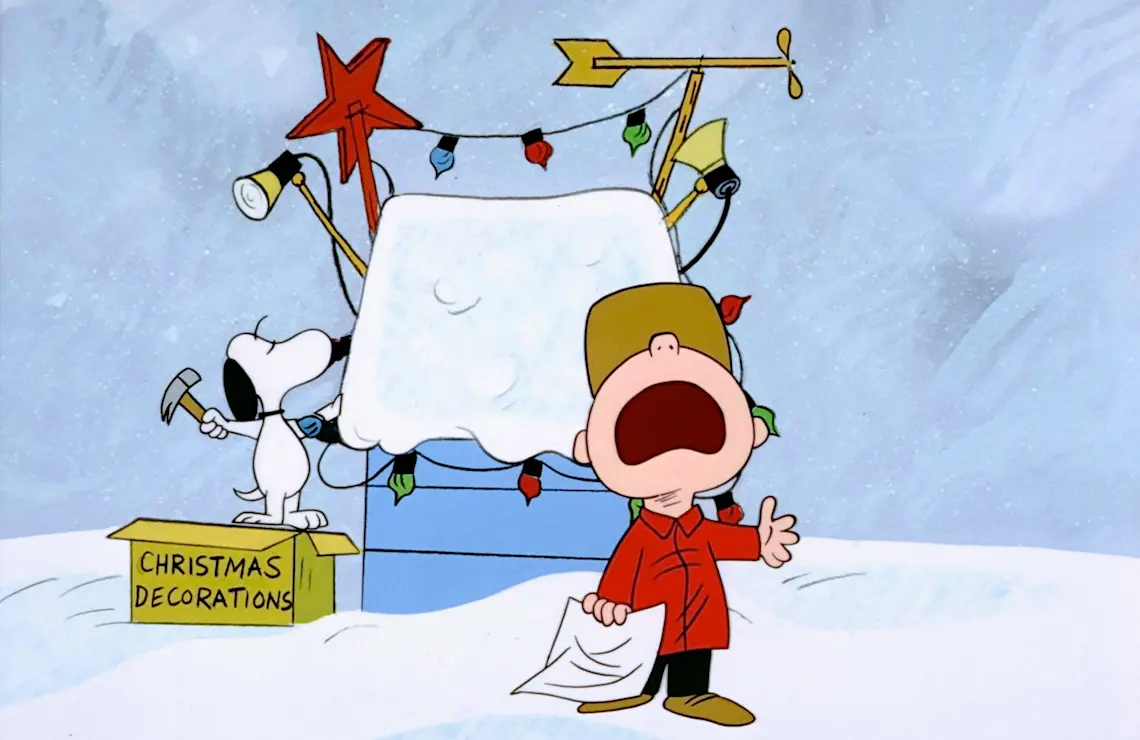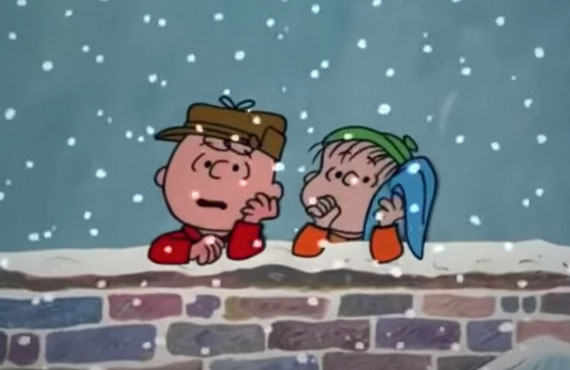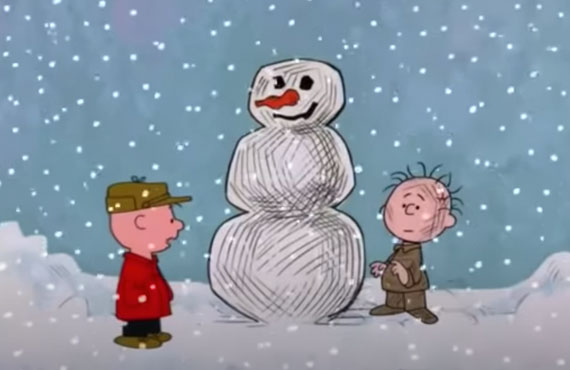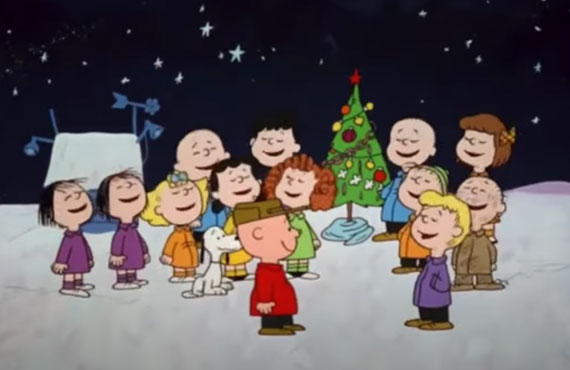5 Life Lessons Learned From A Charlie Brown Christmas
-
 (Image: A Charlie Brown Christmas)
(Image: A Charlie Brown Christmas)The jokes about the Peanuts kids being a bunch of introspective, philosophically attuned, often depressive little grade-schoolers have all been made before, but they're brought vividly to life in the beloved holiday special A Charlie Brown Christmas. We return to this special, which is streaming on Apple TV+, every year for its gorgeous soundtrack, the way it reminds us of growing up and watching it on network TV on a school night, and of course that iconic Charlie Brown Christmas tree that can barely withstand the weight of a single ornament.
That's the thing about the Peanuts holiday specials: they'll really punch you in the gut with some serious melancholy. On the other hand, some of the best Christmas specials, movies and carols trade in melancholy, and A Charlie Brown Christmas also happens to boast a great mix of humor, music, and sweetness.
With that in mind, here are the five most important lessons learned from this bedrock text that has so much to teach us about Christmas, and indeed life itself.
1. People Who Get Performatively Melancholy About the Holidays Are a Real Chore

Look, we all love Charlie Brown. He's an adorable, bald-headed kid whose friends should be nicer to him and who seemingly dreams of being an NFL placekicker. But he's also a stone-cold bummer, and while his skepticism about the world around him is easier to take in certain contexts, he's a particular downer when it comes to Christmastime. Linus nails Charlie's vibe in the opening minutes: "Charlie Brown, you're the only person I know who could take a wonderful season like Christmas and turn it into a problem."
Does Charlie have a point? Sure. Christmas is canonically the "most wonderful time of the year," but that kind of festive reputation really can boomerang on you if you're feeling lonely or isolated or sad around the holidays. Charlie's bumming because he didn't get any Christmas cards from his classmates, and he can't seem to get into the holiday spirit. But he's leading every conversation with his Christmas quibbles, annoying the hell out of Linus, and generally being that person you know who complains nonstop about how early the Christmas decorations go up at the mall every year. Lesson learned? Don't be that person! That person is a chore to deal with. Linus, again, sums it up perfectly: "Of all the Charlie Browns in the world, you're the Charlie Browniest."
2. It Never Hurts to Brush Up on Your Phobias
This one is pretty straightforward, and is pretty specific to my own experience watching this special growing up. Just like how a certain John Goodman movie from 1990 taught me that arachnophobia was a fear of spiders, the scene where Charlie Brown approaches Lucy's famous 5-cent psychiatric help booth in A Charlie Brown Christmas taught me that hypengyophobia is a fear of responsibility, ailurophobia is a fear of cats, climacophobia is a fear of stairs and staircases, thalassophobia is a fear of the ocean, and gephyrophobia is the fear of crossing bridges. That last one has been especially helpful since my father is one (a gephyrophobe, not a bridge). And then, of course, there's pantophobia, a fear of everything. Which Charlie Brown kind of sarcastically hollers is the right answer, but these days, who can't relate to having a bit of pantophobia?
3. Pigpen Is a Beacon of Self-Esteem

Outside of the core four — Charlie Brown, Linus, Lucy, and Sally — most of the other Peanuts kids each get maybe a beat or two to remind you what their deal is. Frieda of course won't shut up about her naturally curly hair. Violet is especially mean to Charlie Brown. Schroeder endures Lucy's attentions by giving increasing focus to his piano playing. One kid who actually gets a good bit of attention in A Charlie Brown Christmas is Pigpen, the crudely named kid whose whole deal is he's so dirty that he carries a cloud of filth with him wherever he goes. Charlie Brown even semi-dunks on him, noting that only Pigpen could make a snowman look dirty. But when Pigpen get assigned the role of the Innkeeper in the Christmas play, he takes the role on with serious intent. And when Freida tries to shame him for looking like an "absolute mess," Pigpen merely looks in the mirror and says, "On the contrary, I didn't think I looked that good." All that plus he manages to hold up that upright bass during the dancing scenes. Pigpen is a model for us all on how to withstand bullying with quiet self-esteem.
4. Artificial Christmas Trees Are BAD
The first artificial Christmas trees were manufactured in the 1930s, but it wasn't until the late '50s and early '60s that they started to become popular, particularly fake trees made of aluminum, which is what gets referenced pejoratively in A Charlie Brown Christmas. This special was produced in 1965, so you can see why the scourge of fake trees felt like such a pressing issue. A Charlie Brown Christmas despises fake trees; it looks in horror at a lot full of pink and blue and purple trees, all garish in their artificiality. It idolizes the humble little runt of a tree that Charlie Brown picks out, because even though it's shed almost all of its needles and can barely support an ornament, it is real.
The special is a rallying cry against over-commercializing Christmas in general, of course. Charlie Brown is dismayed at the crassness of his friends and even his sister in their desire for material gains at Christmas (Lucy wants real estate; Sally wants cold, hard cash). He laments Snoopy decking out his doghouse in lights in order to win a contest. (Though it's worth noting that Charlie Brown's precious little tree' eventually gets its glow courtesy of Snoopy's crassly commercial lights and trinkets.)
In the decades since — and, who knows, perhaps due in part to A Charlie Brown Christmas — the primacy of real Christmas trees has re-asserted itself at the center of American holiday traditions. I'm not sure I've personally internalized this lesson, as I gaze out at my artificial tabletop tree. But it's true that there's nothing quite like real pine.
5. Time Is Impermanent

Linus attempts to wrap up the theme of A Charlie Brown Christmas by reading a Bible verse about the birth of Christ, and certainly religious people would get onboard with a "Jesus is the reason for the season" message. But the enduring popularity of this special has much more to do with Christmas as a secular tradition — made up of everything from trees, to lights, to White Elephant parties, TV specials, movies, songs, cookie platters, and various nogs. Time marches on and culture finds its own way to define a thing.
Joe Reid is the senior writer at Primetimer and co-host of the This Had Oscar Buzz podcast. His work has appeared in Decider, NPR, HuffPost, The Atlantic, Slate, Polygon, Vanity Fair, Vulture, The A.V. Club and more.
TOPICS: A Charlie Brown Christmas, Apple TV+, Christmas